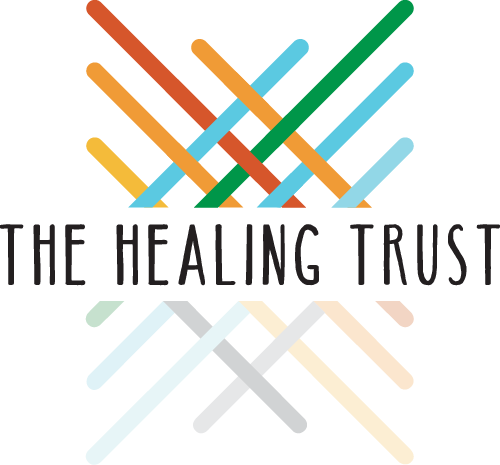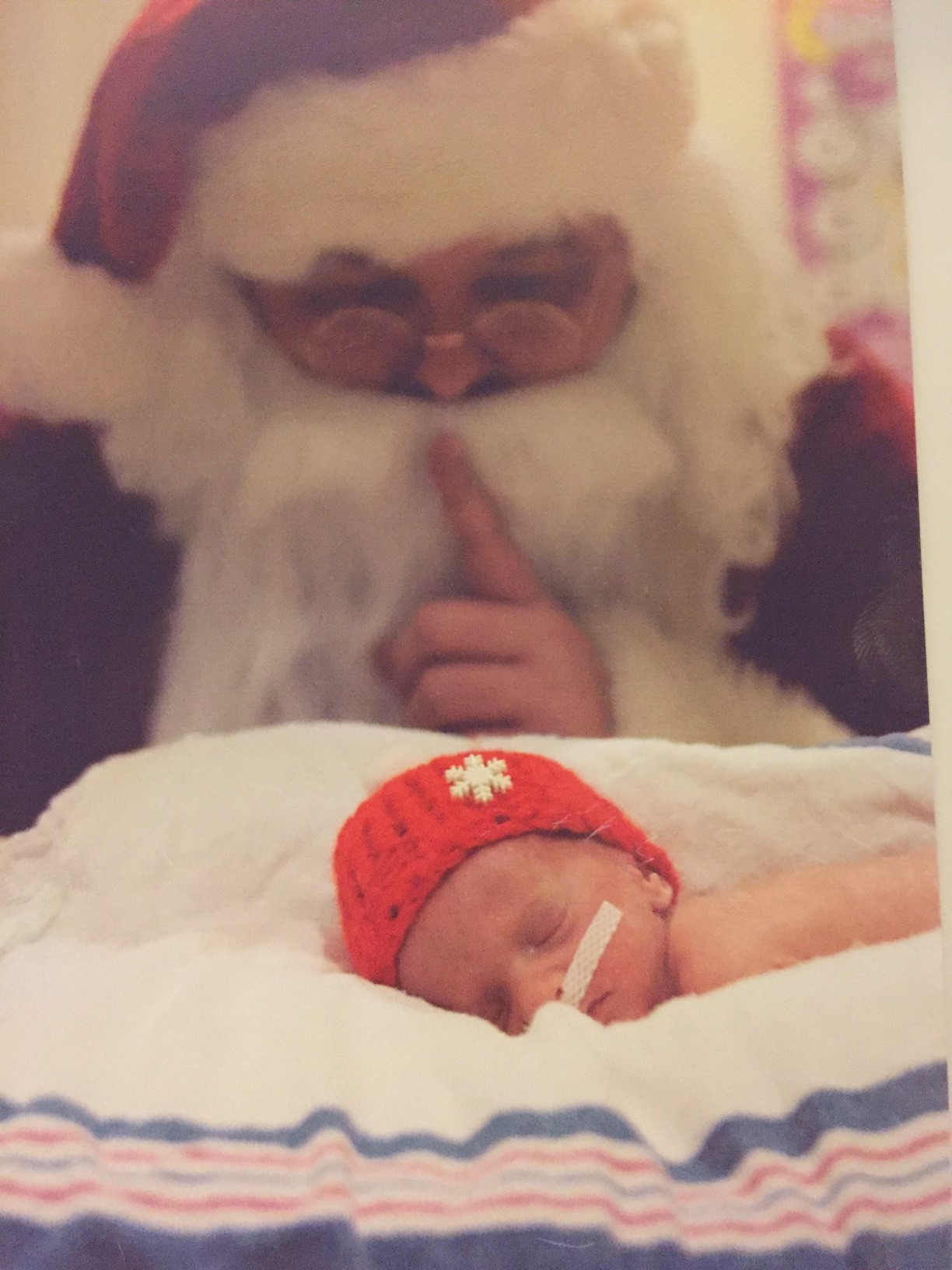I thought I had the answers when it came to advocating for myself and my family. I earned a Master’s degree in Social Work and worked with advocates and organizers, so I thought I knew about individual advocacy. The premature birth of my daughter, Evelyn, taught me how much I didn’t know.
My husband, Max, and I were overjoyed to learn that I was expecting in May 2016. Our joy turned to fear about 6 months before her due date when we learned that she was measuring small and it was possible that something was wrong with her heart. We spent months in a cycle of testing, waiting, and worrying. A failed stress test on December 7th changed everything. The doctor was so concerned that she said, “Go straight to the hospital. Do not go home.” We took her advice and after 24 hours of monitoring and seeing Evelyn’s heart rate decline, we decided to deliver our daughter two full months early via C-section.
Evelyn weighed 2 pounds and 10 ounces when she was born due to intrauterine growth restriction (IUGR). She wasn’t stable or big enough to come home and would ultimately spend a little over a month in the Neonatal Intensive Care Unit (NICU). There were still some unknowns regarding her heart, but those issues eventually cleared up on their own.
In the first few hours, Evelyn was on a continuous positive airway pressure (CPAP) machine and was struggling to process bilirubin, but otherwise was just small. I, mistakenly, thought the NICU was like camp and we would drop her off and pick her up in a month or so. I felt like I needed to control some parts of this uncontrollable situation and I wanted to “save” my maternity leave until Evelyn came home, so I told The Trust’s staff that I was returning to work a week after giving birth. Thankfully, my coworkers pushed back on that decision and helped me figure out that I needed to take some time to process and adjust to my new reality.
A whole new world
My new reality involved the arduous task of lining up resources for our family. A hospital social worker guided us through the process of applying for state insurance, connecting with Tennessee Early Intervention Services (TEIS), and securing developmental therapy for Evelyn. My brother encouraged me to participate in a local parent support group for NICU families called Parents Reaching Out (now Family Voices of Tennessee). That group helped normalize my experience, taught me how to best advocate for my child, and reminded me to take care of myself during this trying time. It was a relief to hear the stories of other NICU parents.
The wisdom and experiences of those families were with us when we took Evelyn home after her 5-week NICU stay. She weighed exactly 4 pounds and came home three weeks before her original due date. We were excited and relieved to bring her home, but also scared to begin the journey of parenthood with a fragile little baby.
In addition to learning how to care for a preemie, I also had to learn how to accept help. The resources provided from TEIS were incredibly helpful, but it was strange for me to be on the receiving end. My education and career have been focused on providing resources, and it was a struggle for me to accept that I couldn’t do it all on my own. In a post-partum, sleep-deprived haze, I realized that taking care of myself and Evelyn was going to be a greater challenge than I expected.
An unexpected challenge
Caring for Evelyn turned out to be just one of many challenges that Max and I had to face.
We learned that our application for state-funded insurance was declined. We were certain that Evelyn was eligible because of her birth weight and the bill for her five-week NICU-stay was over $100,000. Between caring for Evelyn and recovering from a C-section, I used my health insurance advocacy experience to get to the bottom of the denial. Max is an attorney and together we sent about half a dozen letters, made numerous phone calls, and followed-up constantly on Evelyn’s case. After three months, Evelyn was officially insured and the decision was retroactive to the day after her birth. An administrative mistake led to the initial denial. While the mistake was a simple one, it would have had massive implications for our family.
The future is bright
Evelyn will be two in December. She is a busy, sweet toddler. She still receives services from TEIS, and she goes to daycare full-time at First Steps. As a family, we are happy, healthy, and learning from one another. I work full time at The Trust, volunteer for Family Voices of Tennessee as a parent mentor and am working on my social work supervision for my licensure. Evelyn and I love to go for walks and watch Moana together.
Evelyn’s birth opened my eyes to the various types of support that are needed in a health crisis. While I had known, intellectually, that navigating systems could be an arduous process, there was nothing like experiencing it firsthand. Having to advocate for my daughter made me realize how difficult it is and how much more challenging it is for people who do not have the same resources that were available to us. Knowing this makes me all the more grateful for organizations who advocate for and help Tennesseans navigate the health care system.
Has your family been impacted by a premature birth or had difficulty navigating the healthcare system? What resources or support did you receive?
Catherine Smith is the Program Associate at The Healing Trust. Click here for a list of organizations that can help families of premature infants.

